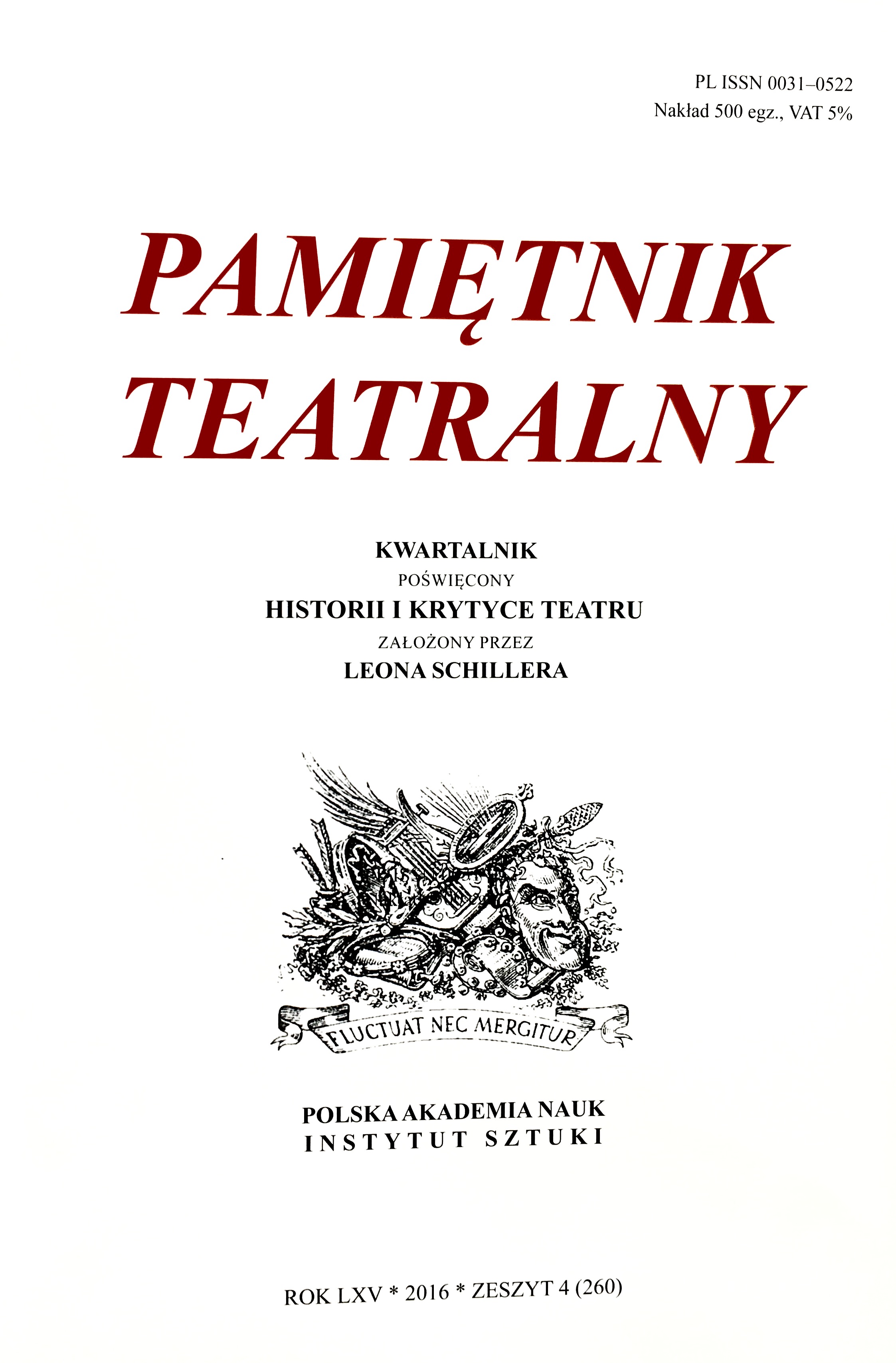Samosąd mdłej demokracji na jestestwie
Summary Execution of the Individual by Bland Democracy
The Philosophy and Drama of Stanisław Ignacy Witkiewicz and the Thought of Martin Heidegger
Author(s): Antoni WinchSubject(s): Theatre, Dance, Performing Arts
Published by: Instytut Sztuki Polskiej Akademii Nauk
Keywords: Witkacy;Heidegger;
Summary/Abstract: The article is informed by an insight that has been present in Witkiewicz studies for a long time and makes it viable to read Witkacy’s dramaturgy and philosophical investigations through the philosophy of Martin Heidegger. Thus, the structure of the essay rests, on the one hand, on a reading of Witkacy’s dramas—The Pragmatists (1919), The Anonymous Work (1921), The Madman and the Nun, or There Is Nothing Bad Which Could Not Turn into Something Worse (1923), and The Mother (1924)—as well as on an analysis of his philosophical writings of 1933–1939. On the other hand, it is based on a presentation of Heidegger’s conceptions of the authentic and inauthentic modes of Dasein, his understanding of primordial temporality and truth, his notions about the end of philosophy brought along by the domination of operative thinking, and the role he ascribed to metaphysics. The conclusions flowing from setting the dramatic and philosophical writings of Witkacy in the context of Heidegger’s thought enable us to look at the lot of protagonists of Witkiewicz’s plays in a new way. It is not only determined by the super-cabaret improvisations arranged by the characters for their metaphysical thrills; it is also an arena of struggle between the Heideggerian authentic self-being and the inauthentic they-being. The struggle in which, according to catastrophic premonitions of Witkiewicz’s and beliefs of Heidegger, the they-being wins.
Journal: Pamiętnik Teatralny
- Issue Year: 260/2016
- Issue No: 4
- Page Range: 33-54
- Page Count: 20
- Language: Polish

